The merchandise that was advertised in The Saturday Evening Post throughout the 1920s tells a lot about the era. The Great Depression had not yet descended upon America, and people were excited to spend their money on the latest cars, home appliances, and fashions.
For access to our complete magazine archive, including all of the advertisements from 1821 to present day, subscribe to become a member.
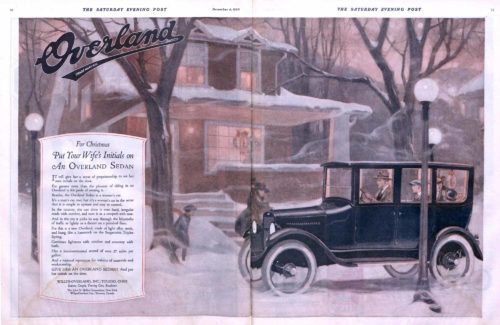
December 4, 1920
(Click to Enlarge)
The first Overland car was produced in 1903, and the last in 1924. This 1920 ad encourages the man of the house to buy an Overland as a gift for his wife, an indication of the growing ubiquity of automobiles, the acceptance of women as drivers, and economic times that would allow a family to own two cars.
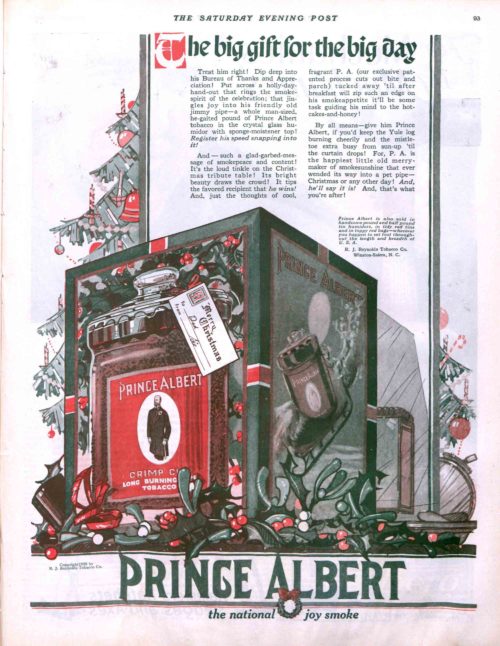
December 4, 1920
(Click to Enlarge)
Prince Albert was a brand of pipe tobacco introduced by R.J. Reynolds in 1907. If the recipient was half as enthusiastic as the advertising copy, then this gift would have been a resounding success.
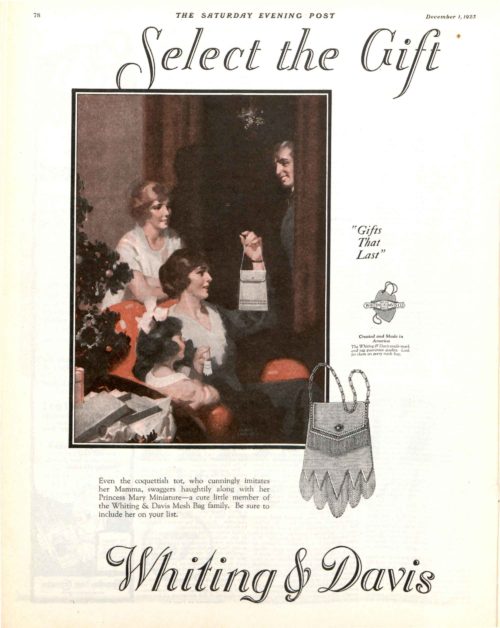
December 1, 1923
(Click to Enlarge)
Mesh bags were all the rage in the 1920s, the perfect accompaniment to the new flapper style.
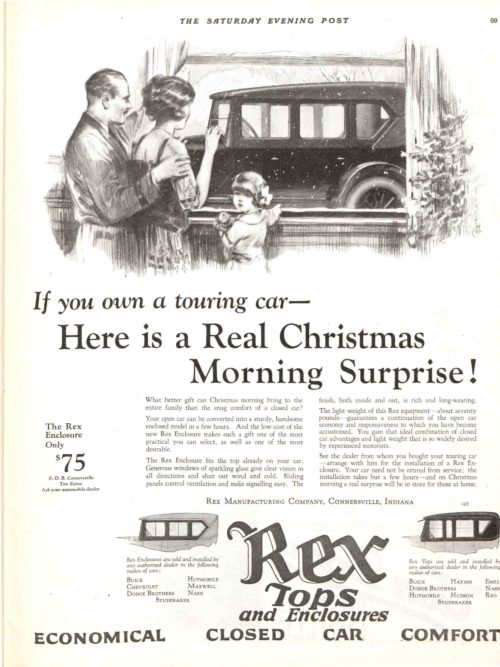
December 1, 1923
(Click to Enlarge)
Cars were evolving rapidly in this era, and the old touring cars (a car without a fixed roof) were falling out of favor. A Rex Top could be installed at the dealer in a matter of hours.
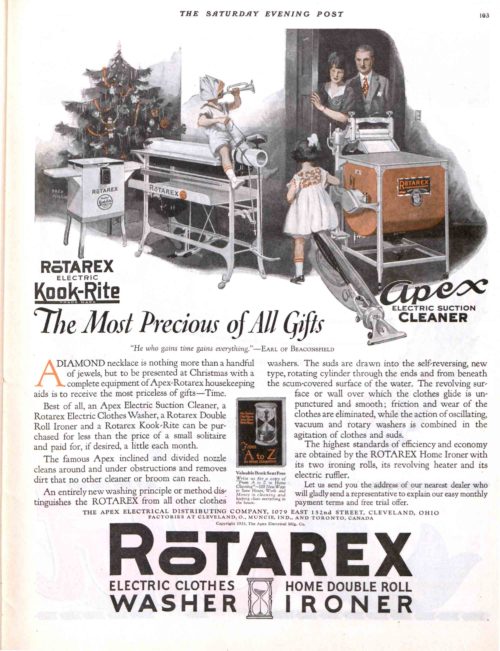
December 1, 1923
(Click to Enlarge)
Along with advances in automobiles and building materials, many new household appliances were making their debut in the 1920s. Whereas a “diamond necklace is nothing more than a handful of jewels,” these electric servants would give your spouse the gift of time. Many of these items were new to homes: the washing machine was patented in 1916, and the first motorized vacuum cleaner was invented in 1907.
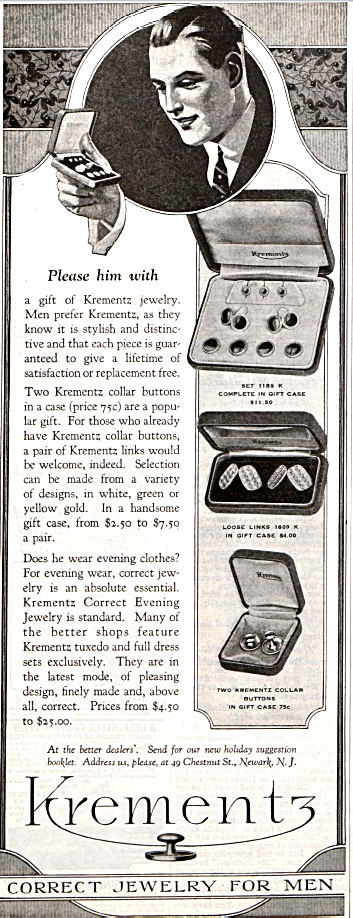
December 1, 1923
Collar buttons, cuff links, and tuxedo sets from Krementz were “of pleasing design, finely made, and above all, correct.” Krementz was the leading maker of collar buttons worldwide, a business that vanished once detachable collars fell out of style.

December 8, 1928
This ad for Iver Johnson bicycles promoted bikes for boys, girls, dads, young children, and tiny tots. As the automobile became more affordable – and thus more popular – bicycles fell out of favor for adults in the U.S. and were considered to be a children’s toy.
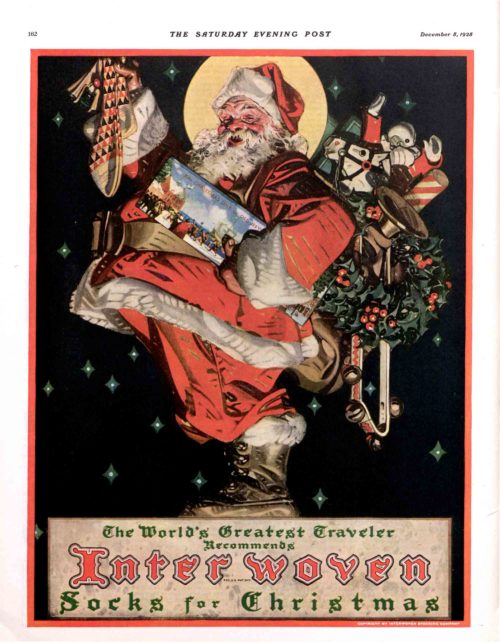
December 8, 1928
(Click to Enlarge)
Socks may be the default Christmas gift when better ideas fail to appear, but one can’t argue with the jolliness of the Interwoven Santa Claus.
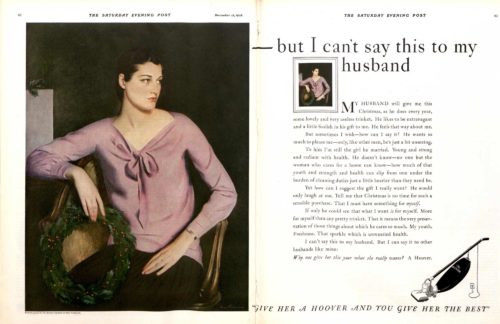
December 15, 1928
(Click to Enlarge)
“But sometimes I wish—how can I say it? He wants so much to please me—only, like other men, he’s just a bit unseeing….I can’t say this to my husband. But I can say it to other husbands like mine: Why not give her this year what she really wants? A Hoover.” [WARNING: Advice may be faulty.]
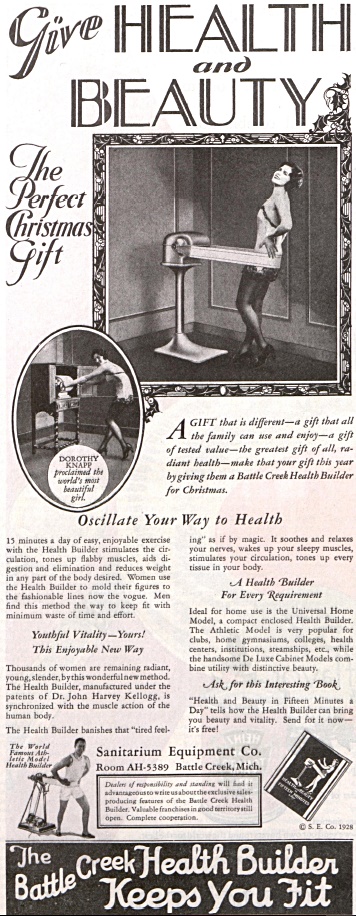
December 15, 1928
The Health Builder was manufactured under the auspices of John Harvey Kellogg of the Kellogg cereal empire. They employed Dorothy Knapp, “The Most Beautiful Girl in the World,” to sell the shaking machine.
Become a Saturday Evening Post member and enjoy unlimited access. Subscribe now
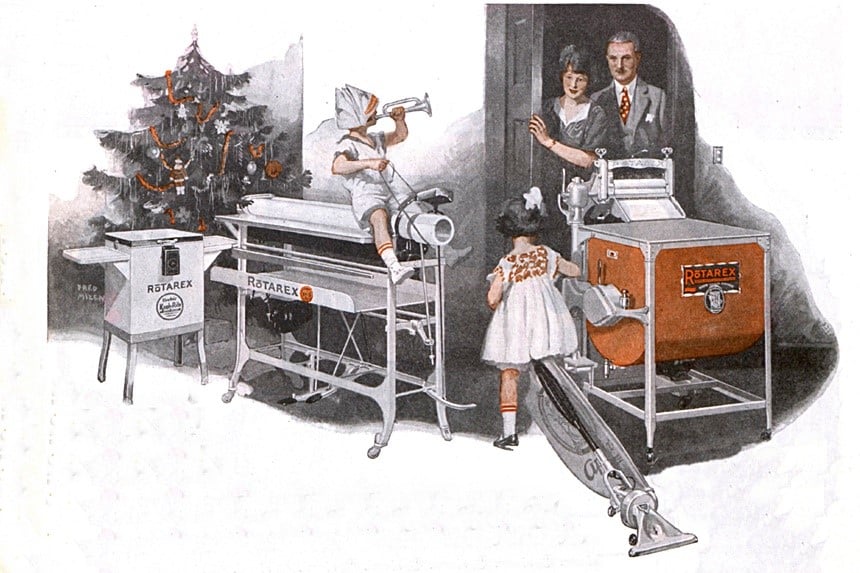


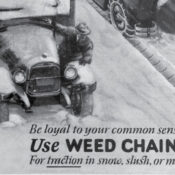
Comments
The Overland ad at the top is really beautiful. In fact, the two-page spread almost looks “television big” doesn’t it? I’m sorry they went out of business just four years after this ad appeared. I’ll have to find out why it happened, especially during these (still) good economic times.
I like the artwork in the Prince Albert ad, but otherwise not so much. Hopefully Prince Albert (of Monaco) steers clear of tobacco products. Europeans are still big on smoking in general, so who knows?
Lucky was the young woman (or young at heart) who received this sexy handbag at Christmas, or any time of year!
The Rex Top was quite impressive. I don’t know how long they lasted (as a product) once the manufacturers started building them with the fixed roofs on the assembly line.
Love the name Rotarex. Who wouldn’t want these wonderful labor saving machines in their homes? The gift of time so sought after up to, and past mid-century is nowhere to be found now. The technology now involves time robbing interaction, leaving the free time envisioned then gone with the wind.
The Krementz ad is appealing to me. I like cuff links, tie clips and additional swanky men’s ‘jewelry’ from early and mid-century. That and the right cologne (Eternity), clothes, shoes etc. My Dad never went in for any of this. Living as an adult in decades of diminishment (90s-present) has made me appreciate these wonderful accouterments of The Rat Pack era and before, minus the smoking and drinking naturally.
I love the Iver Johnson bike ad too. It’s interesting bicycles seem to be comparably popular now to what they were in the ’20s.
The Interwoven Santa Claus ad looks like a Leyendecker to me, but maybe not. The Hoover ad from ’28 may seem sexist on the surface, but if you really read it, it isn’t. Who knew the Kellogg cereal company would have ever sold a ‘health’ shaking machine produced by the Sanitarium Equipment Company?